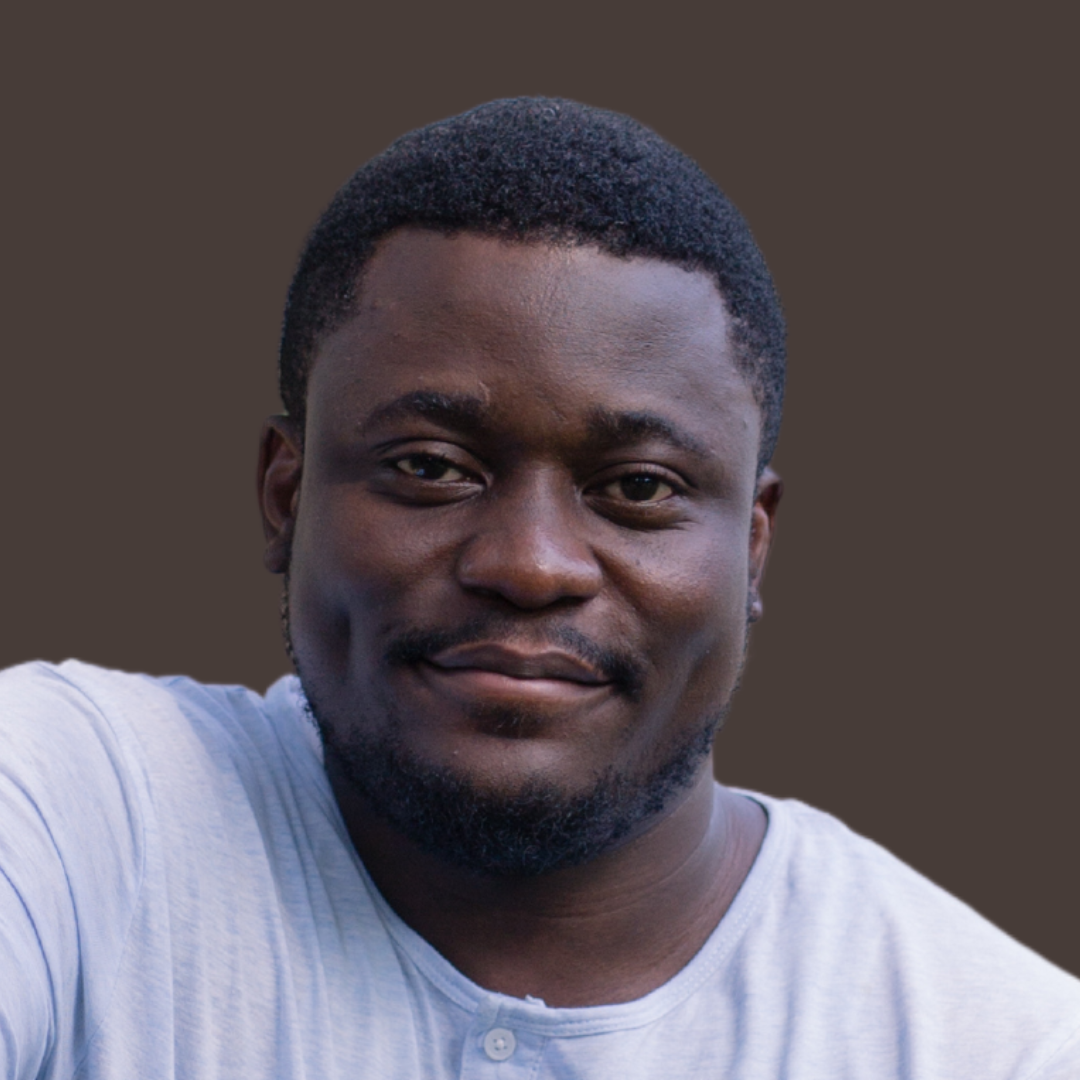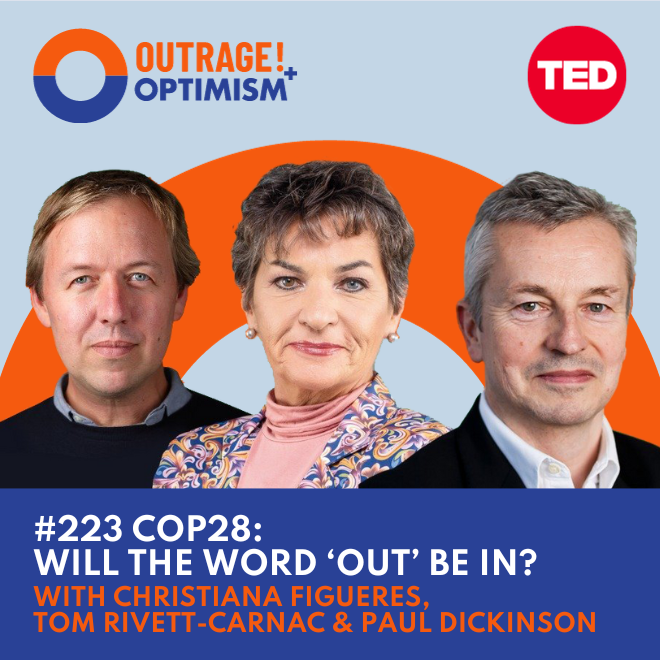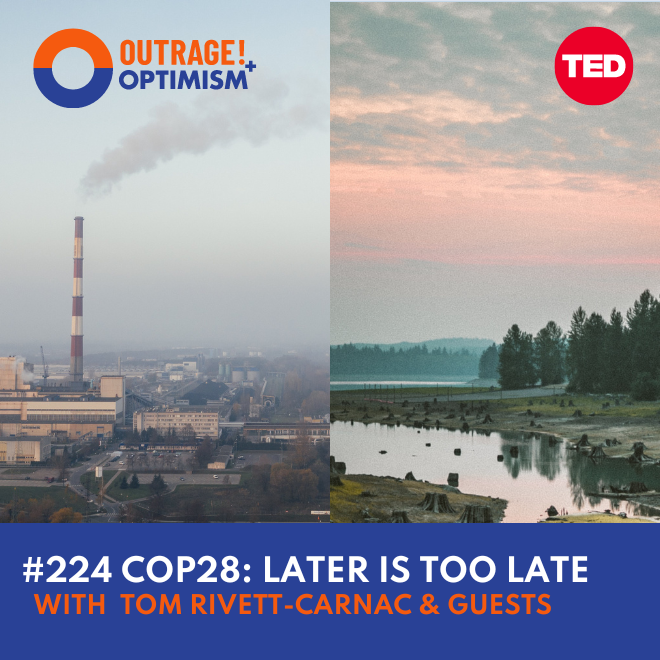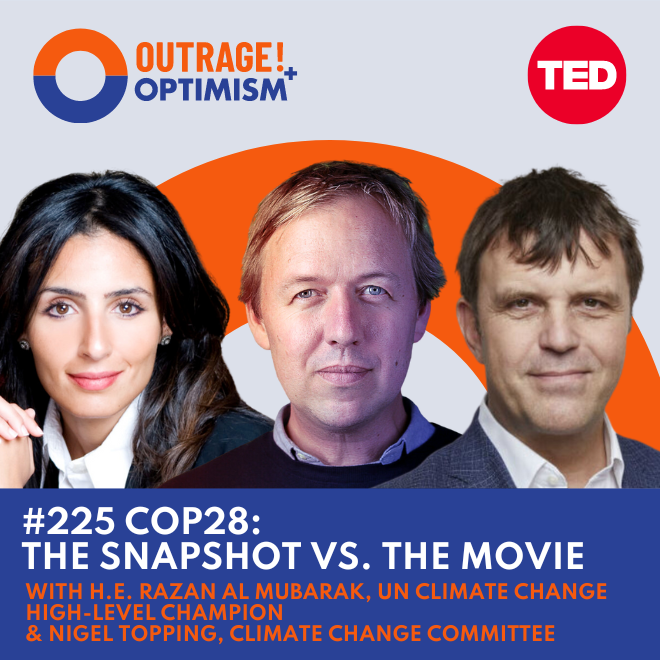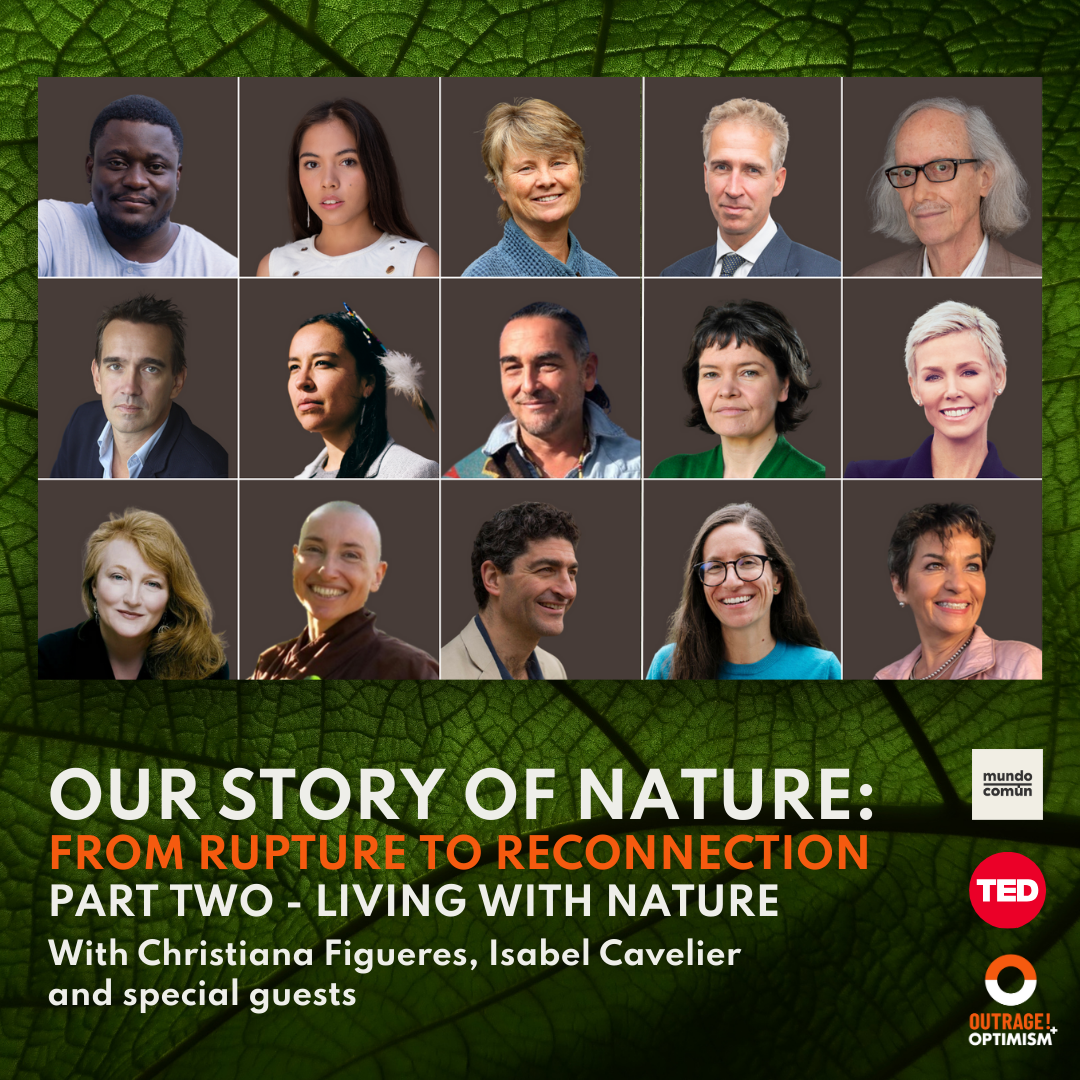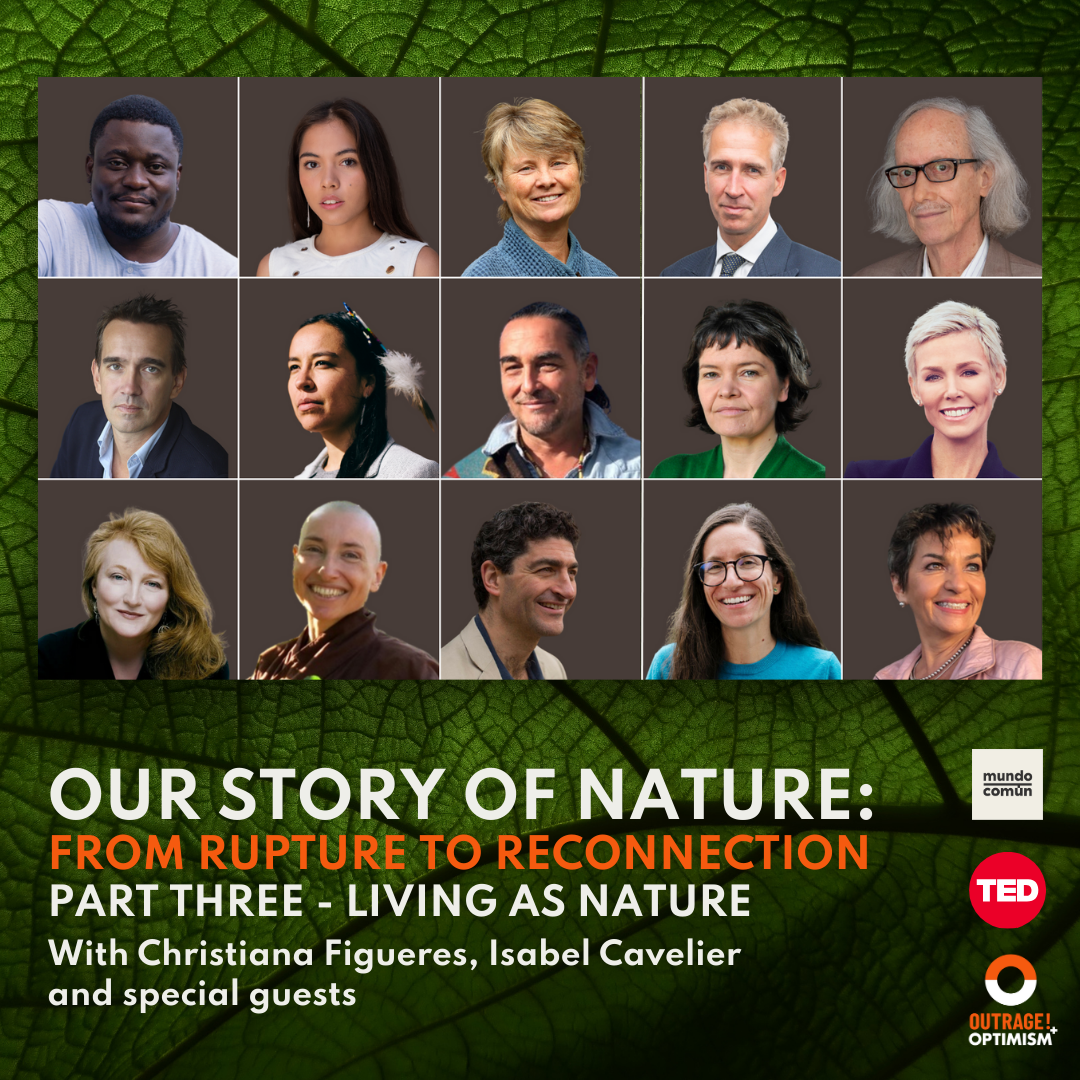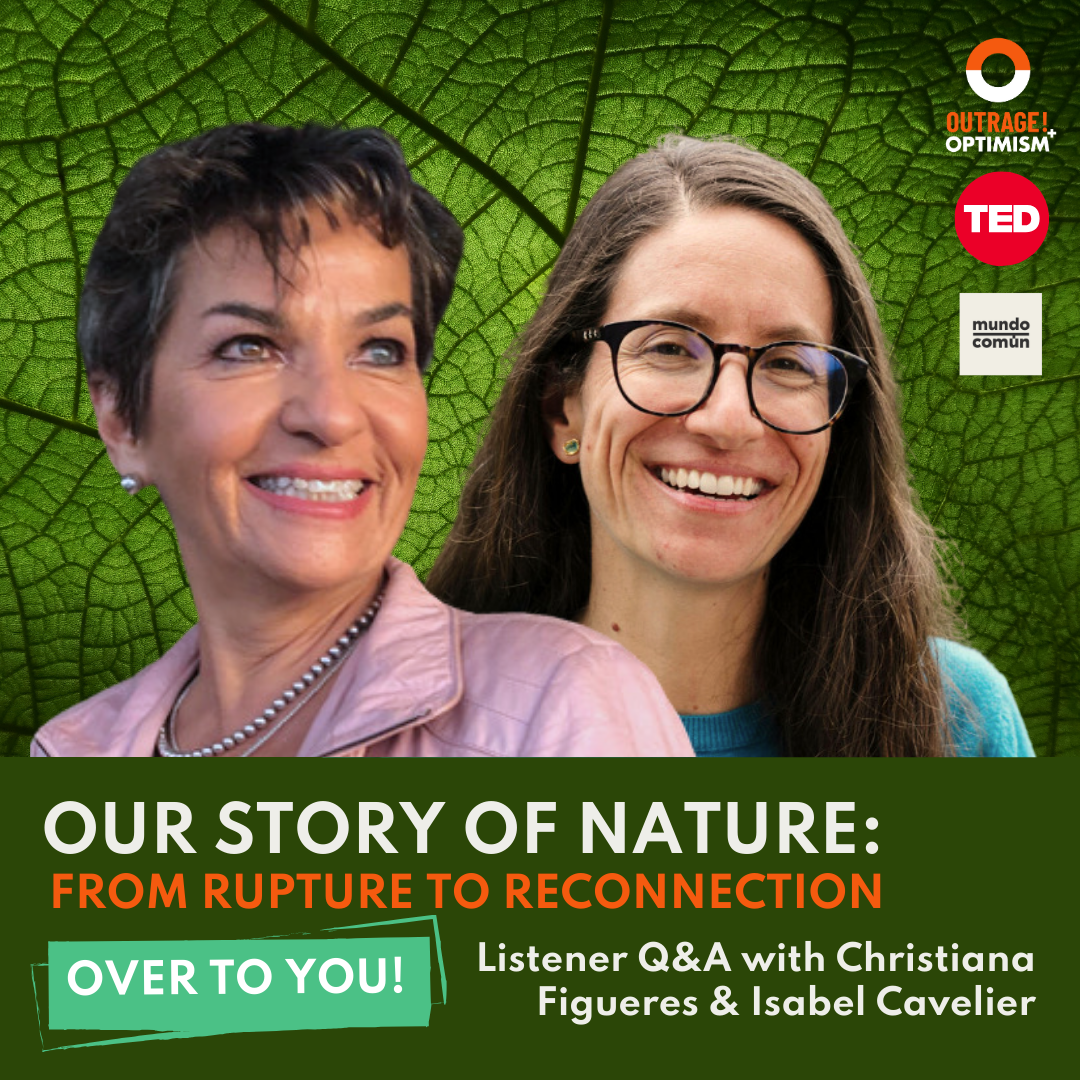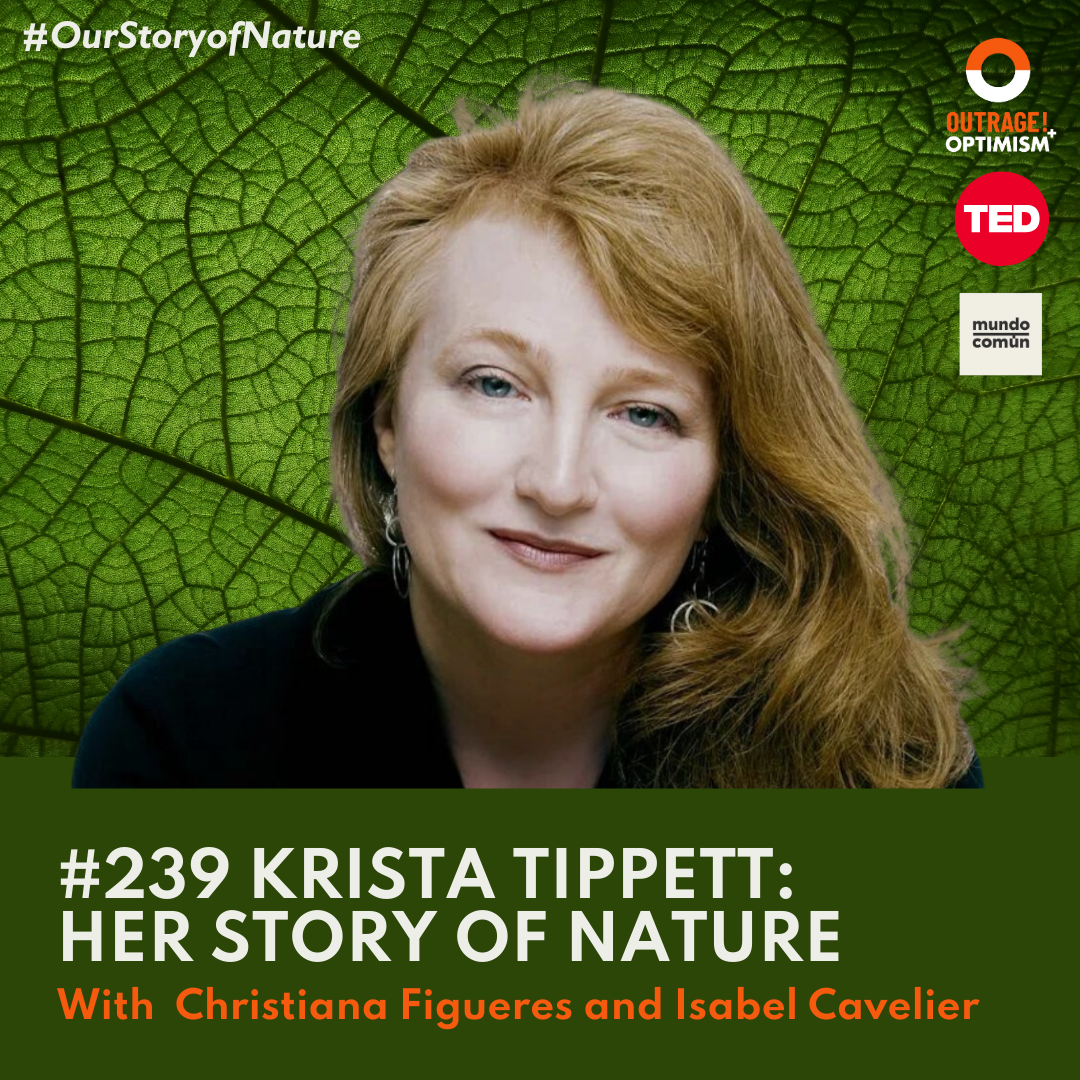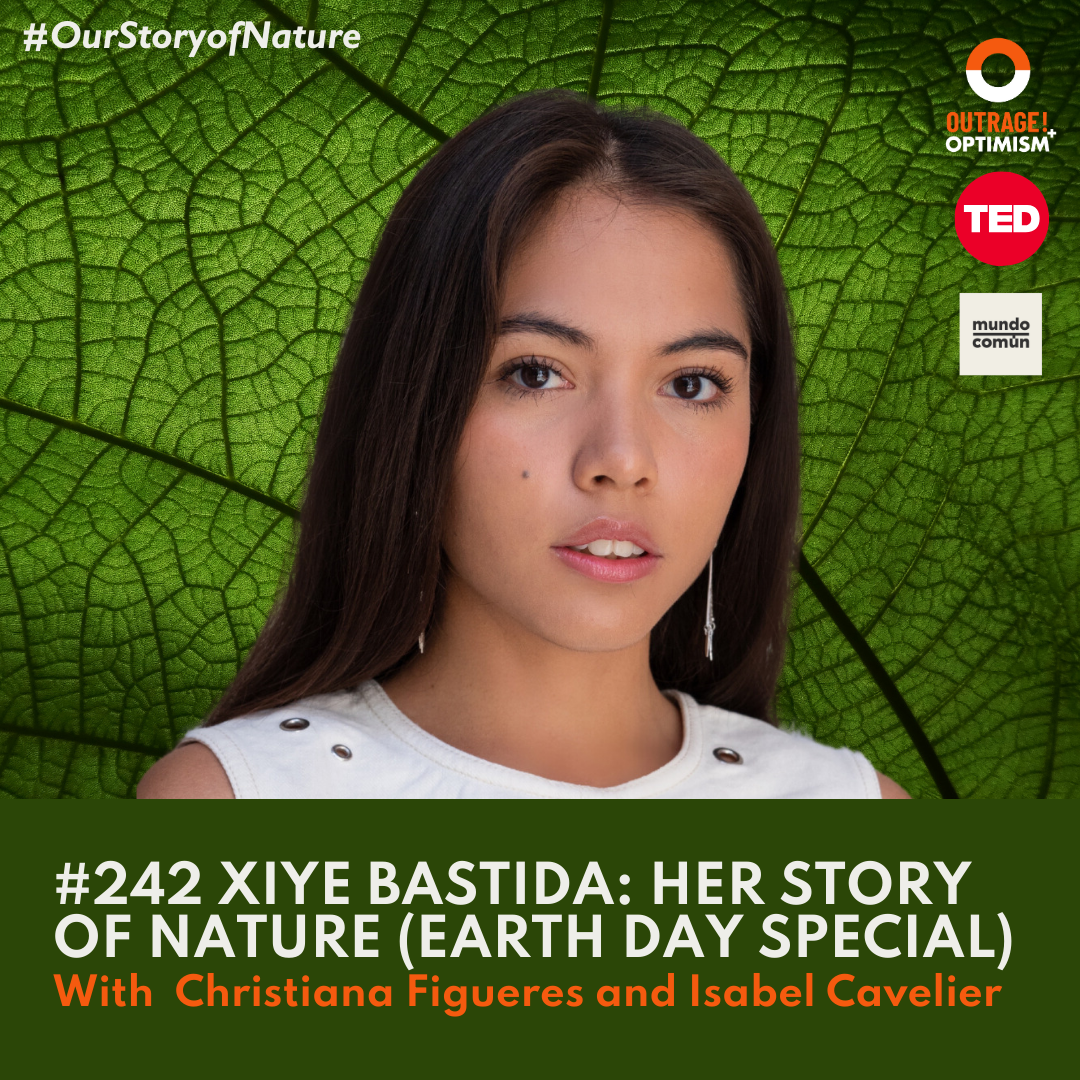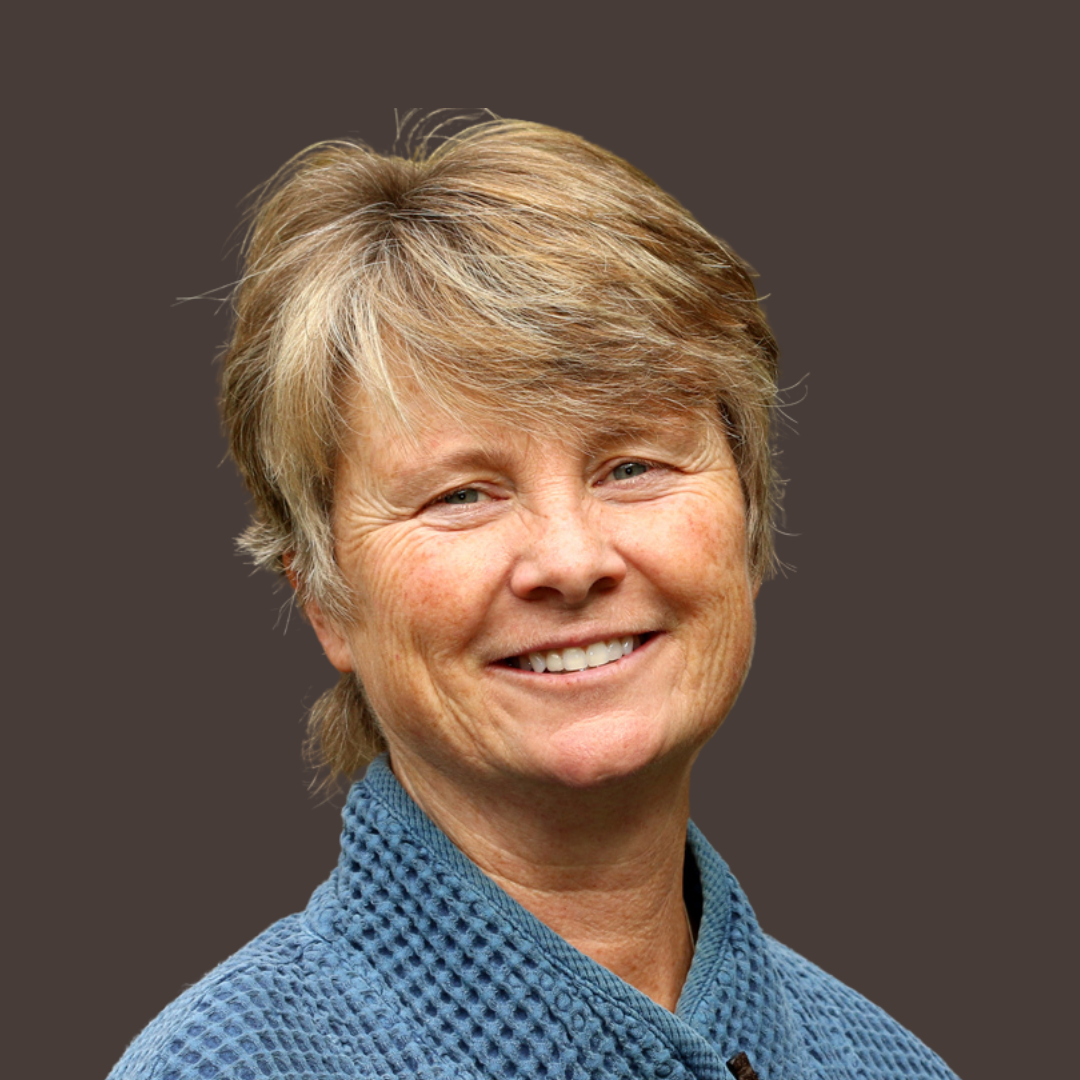230: Our Story of Nature: From Rupture to Reconnection
Part One - Living From Nature
About this episode
This week, Christiana Figueres introduces a new mini-series, Our Story of Nature: From Rupture to Reconnection. Over three episodes, Christiana and guests will shine a light on our relationship with the rest of nature. Does transforming our connection with the natural world hold the key to transforming our response to the multiple environmental, political and social crises we face?
Christiana’s accompanied on this journey by co-host Isabel Cavelier Adarve. Isabel is a former negotiator for Colombia and co-founder of Mundo Comun.
In Episode 1, Living From Nature, Christiana, Isabel and guests delve deep into the roots of humanity’s separation from nature. They explore moments where cracks may have appeared and widened, including the advent of farming and a particular interpretation of the Book of Genesis. How have certain ideas shaped different cultures’ relationships with the natural world, and what are their consequences? Is our distance from nature related to other forms of separation, like colonialism? How can we nurture and narrate new stories of our relationship with nature to address 21st Century problems?
The best and brightest minds from around the globe contribute to Our Story of Nature, including Peter Frankopan author of the Earth Transformed: An Untold History; Janine Benyus, co-founder of Biomimicry 3.8; Dr Lyla June Johnston, indigenous musician and community organiser; Krista Tippett, award-winning journalist and author Reverend Doctor Augusto Zampini Davies, former adjunct Secretary of the Vatican Dicastery for the Service of Integral Human Development ; Wolf Martinez, Traditional Medicine Person, Guardian and Keeper of the old indigenous ways; Arturo Escobar Professor Emeritus of Anthropology and Xiye Bastida the co-founder of Re-Earth Initiative.
Once listeners have heard about the roots of our rupture from nature, tune in for the second episode of the series - Living With Nature. A stellar cast of experts will join Christiana to explore how our current systems - food, economy, energy, design - have been built on a mindset of extraction and separation. With characteristic optimism, they will give us a glimpse into how these systems, in many places, are planting the seeds for a more regenerative future.
The third and final episode, Living as Nature, is where the science of awe meets spirituality. Christiana and Isabel invite listeners to contemplate what it will take for each of us to fully awaken to our interconnectedness as the starting point - the foundational stone - without which no new home can be built for a truly regenerative future.
Please don’t forget to let us know what you think here, and / or by contacting us on our social media channels or via the website.
NOTES AND RESOURCES
GUESTS
Peter Frankopan, Professor of Global History at Oxford University
Website | Twitter | LinkedIn
Janine Benyus, Co-Founder Biomimicry 3.8 and Biomimicry Institute
Biomimicry Institute | LinkedIn | Twitter
Krista Tippett, award-winning journalist, author and host of On Being podcast
Website | LinkedIn | Instagram | Facebook
Reverend Doctor Augusto Zampini Davies
LinkedIn | Laudato Si Platform | Laudato Si Movement | Laudato Si Research Institute, University of Oxford | The encyclical Laudato Si | European Climate Foundation
Arturo Escobar, Professor Emeritus of Anthropology
Xiye Bastida, Co-Founder Re-Earth Initiative, Indigenous Wisdom, TIME100Next, UN HLC Ambassador, TED Speaker
Website | LinkedIn | Twitter | Instagram | TED
Dr. Lyla June Johnston, Indigenous musician, author, and community organizer of Diné (Navajo), Tsétsêhéstâhese (Cheyenne) and European lineages
Website | YouTube | Instagram | Facebook
Wolf Martinez, Diné, Lakota, & Spanish. Two Spirit. Speaker, Ceremonialist and practitioner of Ancient Healing Arts. Therapist. Lover. Human Being.
LinkedIn | Instagram | Facebook
Sister True Dedication, Zen Buddhist monastic teacher in Thich Nhat Hanh's Plum Village Community
Twitter | Instagram
Plum Village
LinkedIn | Twitter | Instagram | Facebook
Dr. Bayo Akomolafe, Public Intellectual, Author, Professor and Chief Curator, The Emergence Network
Website | Course webpage | LinkedIn | Facebook
Learn more about the Paris Agreement.
It’s official, we’re a TED Audio Collective Podcast - Proof!
Check out more podcasts from The TED Audio Collective
Please follow us on social media!
Twitter | Instagram | LinkedIn
Full Transcript
Transcript generated by AI. While we aim for accuracy, errors may still occur. Please refer to the episode’s audio for the definitive version
Christiana Figueres: [00:00:00] Hello and welcome to Outrage + Optimism, I'm Christiana Figueres.
Isabel Cavelier: [00:00:04] And I am Isabel Cavelier.
Christiana Figueres: [00:00:06] We have a treat in store for you. And it's called Our Story of Nature, a new mini series where we dive deep into our relationship with nature or more accurately, with the rest of nature. It's a story of rupture and reconnection. Thanks for being here. So, dear listeners, thank you for joining us here. You might have noticed in the quick introduction that you did not hear Tom's voice, you did not hear Paul's voice, because they are not co-hosting this. I am truly delighted to be joined by my very good Colombian friend, Isabel Cavelier, who is the co-founder of Mundo Comun. And Isa, hola, hola.
Isabel Cavelier: [00:01:06] Hola, Christiana, hello.
Christiana Figueres: [00:01:07] I think you can introduce yourself.
Isabel Cavelier: [00:01:11] Thank you Christiana, I am so thrilled to be here with you. Indeed, I am the co-founder of Mundo Comun and a long friend of yours and another fellow human committed to responding to what is happening today in the world.
Christiana Figueres: [00:01:27] Isa, can you, perhaps summarize for us if that is possible, because this is a pretty complex topic, but can you summarize, what are we trying to do with this series?
Isabel Cavelier: [00:01:38] We were both thinking about how we can respond to the current moment of our times, some called the ecological crisis or the polycrisis, or you can call it the climate crisis. In any case, where were its roots. Many of us have become disconnected from the rest of nature. So you and I, Christiana, have spent the last several months talking to some of the best and the brightest minds around the world about how this separation from the rest of nature might have been the origin of this current polycrisis. What were its consequences. And most excitingly, what are the news stories that are now emerging and that are replacing that separation story. Let's share with listeners a quick taste of some of the people that we'll be hearing from.
Sister True Dedication: [00:02:35] If we wish that in 100 years time, people can sit in peace under a tree and be able to listen to birdsong, we'd better start doing that today and not even tomorrow. We should do that today.
Peter Frankopan: [00:02:51] I hope by 2050 all young kids will understand the natural world better. I hope that we will be more sparing of the ways in which we mine and dig and burn and eat.
Xiye Bastida: [00:03:02] Whatever you do to Mother Earth, you are doing it to yourself. If you nourish Mother Earth, you're also nourishing yourself.
Bayo Akomolafe: [00:03:10] Nature denatures itself, even when we speak about it poetically, like saying, hey, let's get back to nature. Then where are you leaving from, there isn't some outside of nature that you're standing on. We have always been connected to nature.
Christiana Figueres: [00:03:30] Our episode today is entitled Living From Nature, because it is the story about our original rupture and separation from nature, how we humans felt like we had control over nature and were superior to nature and could extract without limits, how our different systems of belief and religious origin stories fed into that idea of separation and superiority, and some of the surprising consequences of those stories, such as colonialism, patriarchy, and depletion of the Earth's resources. Load More
Peter Frankopan: [00:04:34] Hello, my name is Peter, and if you know me well and I like you, you can call me Pete.
Isabel Cavelier: [00:04:40] Peter Frankopan. Peter is the author of the Earth Transformed: An Untold History. Peter actually argues our environment is a vital, if not the defining factor in global history.
Peter Frankopan: [00:04:54] When you think about history as a whole, for example, everybody would think that history is always about kings and queens or presidents and leaders. Very, very rarely do we think about the natural world. And that's pretty basic, you know. Was it sunny the day the United States declared independence? What happened in the First World War? Was it, did it, you know, was this unusually warm, unusually cold? And does that matter? What kind of decisions get made if you have bad harvests, whether it's ancient Egypt or the ancient Roman world? And I think we are disconnected, history can often become like a Netflix series where we're thinking about people, but we don't think about the natural world, we don't think about the importance of water, of different animal species. And that means that we are quite poorly educated. So my job as a professor is to encourage people to not feel threatened about the fact that maybe we can see things in a different way, and the way that they've been doing things is not wrong, it's just there are different ways of looking at things. So I guess I'm like a curator in a museum where I'm turning the object around. It just so happens that my object is the world and all of its history. So, you know, no pressure.
Christiana Figueres: [00:06:01] So Isa what a fun analogy that Peter uses about being like a curator in a museum, picking up an object, which, by the way, is not allowed in museums. But at least let's assume that you could, and looking at it from different sides, not from the one side that has already been exposed to us.
Isabel Cavelier: [00:06:26] That is right. We are situated in a particular moment of the Earth's history, 2024, and we are situated in a particular place. So our perspective is always non-neutral. And it's just one perspective out of many possible ways to tell pretty much any story.
Christiana Figueres: [00:06:50] So true. And it just strikes me, I mean, it's obvious to the two of us Isabel, but maybe we should make it obvious to our listeners that we are going to be telling the story with, as broad a perspective as we can manage. But not only are we both women, we're both Latin American women. So everything that we're sharing here, we're not sharing because it is the ultimate truth. It is a patchwork, I would say, of many different perspectives that we have put together. But hopefully each of you listeners has yet another perspective, yet another experience, yet another story that can enrich the story that we will weave for you here. We're going to tell you a story, which is not a short story. It's not about what happened yesterday or last week. It's a long story because it traces the evolution of humanity here on this planet. And perhaps one place to start is the transition. More or less 12,000 years ago. The transition when humans evolved from being nomads and hunters and gatherers, fully dependent on nature for food, shelter, for survival, and hence 100% symbiotic with nature. They over time transitioned. Or we humans, we transitioned to beginning to settle, to farm, begin to feel that we owned the land, that we owned the animals, that we owned the plants. And that sense of ownership led to a sense of superiority, is at the basis of what today we recognize as the original separation from nature. What a moment in time.
Isabel Cavelier: [00:09:10] Yes, many people point to that specific transition, the first agricultural revolution or the advent of farming as the first point in time. And it calls for us to explore that possibility from a chronological point of view right. You can, we can look at the history of that, how that evolved over time.
Christiana Figueres: [00:09:34] And how it has evolved since then.
Isabel Cavelier: [00:09:35] Exactly. Until today, we had the brilliant Janine Benyus talk about this. Janine spent most of her life studying the natural world. She's the mother of Biomimicry. She calls that an ancient concept.
Janine Benyus: [00:09:51] I am Janine Benyus and I am a self proclaimed nature nerd, and I have the pleasure of being able to work in a field called Biomimicry, in which I am constantly learning from and not just about the natural world and helping the people who make our world try to emulate nature's designs and processes and strategies.
Christiana Figueres: [00:10:21] We asked her, how did our relationship change? When did it change? Why did it change?
Janine Benyus: [00:10:27] While we were in awe of the natural world, there were terrors too. You know, if you were, every day you had to climb out of the cave and you knew there were sabre toothed tigers. Or that there would be a drought one year. There was nothing you could do about it, right. Like there were vagaries in the natural world. And so when we, for instance, started to save seeds and do agriculture, it was as if magic, you know, now we could depend on a harvest. And we began to depend more and more on ourselves and mistake the fact that we were suddenly even better than the rest of the natural world. Our cleverness, you know, we are human cleverness. And what it did, it allowed us to, it allowed us to be more comfortable and things were more predictable.
Christiana Figueres: [00:11:22] So isn't it interesting Isa, how our human nature comes out here so clearly. Because don't we all wish to control for uncertainty. Don't we all wish to have predictability. Don't we all wish to have control.
Isabel Cavelier: [00:11:41] Yes.
Christiana Figueres: [00:11:41] It's so interesting how something that is so ingrained in our human nature actually set or dug the roots into our so-called civilization.
Isabel Cavelier: [00:11:56] That's right. And it's very understandable that we long for predictability and control. But I think the problem comes when that control almost then turns around into an unleashed desire for dominating. And I like to trace, I like to trace the line right. Like that first agricultural revolution when we started for the first time as humans, domesticating other beings. And it really evolves all the way to, over millennia basically, what we now call the colonial project, because it's this wish for domination of the others right. So from that dominion and colonialism, you can also go down to what we now call the scientific revolution, where we started observing the rest of the natural world, and we started making that very mechanical taxonomies, classifications. And we believe that we can be objective observers, basically, that we can completely look at the outside world like a machine and our subjectivity is erased.
Christiana Figueres: [00:13:08] Yeah, I'm struck by the chain, if you will, as farmers, as first time evolutionary farmers, domesticating plants, domesticating animals, domesticating other human beings, in particular women. How we then evolved that domestication instinct, if you will, or desire, into domination, and it seems to me Isa that the only way that we could perhaps unconsciously justify that domination and that sense of superiority is to dissociate, to put very I'm not sure if it's intentional or unintentionally, but certainly it was there, to put that distance between who I am as a human being and animals, plants, other human beings, especially other human beings who look different than I do. Because if I am still recognizing that I am interlinked and a part of all animals, all plants, all human beings, all the rest of life, then it's very difficult for me to be able to have the guts, the arrogance, just to feel superior.
Isabel Cavelier: [00:14:35] Maybe one of the points where this becomes very, very visible is this misinterpretation of the Darwinian science, where we misunderstood ourselves as being superior to everyone else. Janine Benyus speaks about this as well.
Janine Benyus: [00:14:53] Oh, yes absolutely. The scientific revolution, I mean, that was another one of our wow, you know, now there is no limit to what we can do. And really, our brains are, you know, much more, much more clever. Actually, in the origin of the species, as Darwin published it, he didn't say survival of the fittest. He said, survival of the fit. Fit to place, fit to community, fit to your circumstances. So, in other words, the organisms that were most well adapted, those were the ones that survived. And he knew that. I mean, that was what natural selection was. Herbert Spencer, who was a polymath, a contemporary of Darwin's, a philosopher, a political scientist. He wrote a book and he coined the term survival of the fittest, which then went on to justify social Darwinism and the eugenics movement. So some people are more fit than others. So that allowed us to do what we would with those we deemed less fit or less civilized right. So it's yeah, it's, you know, science can be used really to justify what we wish to see in the world rather than what the world actually is. And that's why it's so important that science continues to search for that truth and then actually has a way of changing what it believes.
Isabel Cavelier: [00:16:24] So Christiana, this whole story is not about pointing to culprits, and it's not about trying to say that the scientific method is the origin of separation, because actually quite the opposite. I think the scientific method brought us really an unsurpassed capacity to know ourselves and to understand the rest of nature in more detail than ever before. And the same goes for agriculture or farming. Not all farming is bad per se, right. But it is a psyche of separation, doing things in a way that has that disconnection, that, let's say, nurtures a paradigm of separation, so.
Christiana Figueres: [00:17:13] Yeah, that's right. It's not that we're standing in judgment here. We're standing in witnessing.
Isabel Cavelier: [00:17:18] Exactly.
Christiana Figueres: [00:17:18] And as you were pointing to before Isa, there is this chronological, thread that dates back to at least 12,000 years ago, but also there is another thread that is not chronological, right. That has to do with the religious cultures that have evolved with spiritual practices and traditions that don't necessarily cement themselves into a particular chronology, because they live in a different reality that is much more omnipresent for us and yet surprisingly also have this taste of, what should I say, superiority.
Isabel Cavelier: [00:18:13] Actually, that is because our ways of doing in the world, they are always underpinned by a belief system. Many, many scholars do point to the fact that that moment when we started farming is combined with the origin of monotheism. So the belief in one single God. So it's really interesting how that more chronological evolution, which you spoke about, is also linked with this part of ourselves that is more the mythological, the belief systems. So let's turn to Peter Frankopan, we heard from.
Christiana Figueres: [00:18:51] Again.
Isabel Cavelier: [00:18:51] From him earlier, right. He also has studied the desire, the human desire to dominate and to direct nature and how that is expressed in our belief systems all around the world and throughout history.
Peter Frankopan: [00:19:09] Across lots of different religions, not just Christianity, but Judaism, Islam, lots of religions in India and in China, and different civilizations in West Africa, Mesoamerica, you name it. Most human responses is to look up to the skies and say, the sun is what bakes us, and the rains are, the clouds are what drowns us. How do we have an intervention with the divine, with God that makes us safe. And so the first offerings, the first religions, sprang from an attempt to try to win God or the gods favour for good environmental and ecological conditions. And I guess that speaks to the idea that people living in the past were really worried about the ecological lottery, that if suddenly the rains failed, then communities would starve. So I think that it's something that's embedded into almost every single system of belief, every single political system, which is that you need to find a way of living in harmony with nature and living sustainably. And they were right to be worried about that. And again.
Christiana Figueres: [00:20:07] So true and so understandable, right, that fear and scarcity and vulnerability leads to natural systems of belief. But let's examine how those systems of belief have become sewn into the fabric of religions and some cultures all over the world.
Isabel Cavelier: [00:20:26] I would invite us to dig into one interpretation of one particular religious creation story that I think is ours Christiana, right, is the one that is familiar to us at least is the creation story from the Bible in the book of Genesis, the foundational text of both Judaism and Christianity, and basically to the what we call today, the West. This tradition has pretty, pretty central role in the development of our cultural identity and the rest of our societal machine.
Christiana Figueres: [00:21:01] Yeah. And you know Isa, let's, it is a good place to start, and I'll be happy to remind us of what it says for those who have never read the Book of Genesis, but it says literally, my friends, in Genesis one, verses 27 to 28, 'So God created man in his own image. In the image of God created he him. Male and female created he them. And God blessed them. And God said unto them, be fruitful, and multiply, and replenish the earth, and subdue it, and have dominion over the fish of the sea, and over the fowl of the air, and over every living thing that moveth upon the earth'. That's pretty dramatic. It doesn't leave anything out. And, you know, Isa, I remember, you know, as a child and I grew up in a Christian tradition. I remember listening to this story on Sundays. Do you?
Isabel Cavelier: [00:22:11] Oh, I remember this, too. Absolutely. And I mean, when you read it, just like that, like, it's pretty literal, right. The words are strong, subdue, dominion over.
Christiana Figueres: [00:22:27] Very specific. Over the fish and over every living thing.
Isabel Cavelier: [00:22:30] Every living thing.
Christiana Figueres: [00:22:31] That moveth upon the earth.
Isabel Cavelier: [00:22:32] Yeah. I mean, what can that tell us about our relationship with nature, right. Krista Tippett is the author of Speaking of Faith, a memoir of religion in our time, and she's a brilliant journalist behind the award winning podcast On Being. She offers really interesting thoughts about it.
Krista Tippett: [00:22:54] I grew up in a really Christian upbringing. And I've also been very interested in how, you know, a very particular interpretation of the Genesis story and the Bible, you know, if you need examples of how ideas and words shape the world, this very particular interpretation of these stories, you know, in fact, of the very first story in the Bible, which actually is more like an epic poem than like a piece of prose, and it's certainly not a history lesson, wasn't written that way, which sent human beings forth to dominate and subdue. And that's actually not what those words and what that poetry meant in its inception. But that's how it was internalized, and that's how we have behaved. And it is such an estrangement as much as anything from ourselves, right. Because we are not in the natural world, we are of it.
Christiana Figueres: [00:24:02] We grew up with these stories, as we were saying, of subduing and dominating everything living, and that has been handed down to us since before, before Christ. So it's a long tradition, and it has rooted itself into our psyche so deeply, so deeply that I would argue, even those who never went to church, even those who never read the Genesis, even those who never picked up a Bible they already have, they're born into a society that has rooted this message into itself. And maybe they don't recognize where the stories come from, but it is there, and we are definitely acting it out. Whether we read Genesis or not.
Isabel Cavelier: [00:24:57] It is woven into the very structure of our cultural heritage. But I also want to note, Christiana, that it's not just an interpretation, that dominion, that subduing the earth is not just happening in the West, it's happening all over the world. It really became dominant all over. And I'm sure various other mythologies have been interpreted with this lens. In the words of Dr. Lyla June Johnston, who is an indigenous scholar, musician and community organizer, that story of separation, be it from the perspective of religion or science or you name it, the story of separation truly is a broken myth.
Lyla June Johnston: [00:25:42] Certain texts and certain theologies and certain philosophies say that, well, human beings were given this huge brain and these opposable thumbs. Therefore, we must be somehow either naturally ordained by nature to be the fittest and the most surviving and the most dominating, or some people say, God gave us this because he wants us to rule and dominate the earth, to be the rulers and the supreme, the supreme beings of the earth right. And that's just such a broken mythology. That's just such a broken, software that we've been programmed by for so many centuries and millennia.
Christiana Figueres: [00:26:25] So I think, you know, to realize that it's a broken mythology is relatively recent. And that's the exciting thing that we're waking up to this, and it's not going to be easy. I don't think we should paint this as an easy picture of being able to evolve beyond that predominating thinking and acting that we've had, as she says, for centuries and millennia. How quickly will we be able to do this. It does require a very intentional shift in our thinking and our understanding, in our relationship to nature. And speaking of shifts, how remarkable that Pope Francis has started so many shifts in the Catholic Church, and he has actually publicly said that we have misinterpreted that first book of the Bible for many years. And we were lucky enough to speak to Reverend Doctor Augusto Zampini, who, was for many years the main advisor to Pope Francis on all issues relating to climate change. And that is how we know him. He has since left the Vatican and he continues as a Catholic priest in Buenos Aires. And he's also professor of human development, human rights and ecology. We asked Father Augusto where this came from. How is the Catholic Church reinterpreting and inviting us all to reinterpret the Book of Genesis so that we actually nurture our caring for nature and not our domination of nature.
Father Augusto Zampini: [00:28:21] Just right from the beginning, the first chapter of Genesis tells us that creation has evolved. I mean, from the waters to the earth to plants to animals. And at the very, very end, human beings appeared pretty much close to what we call now the theory of evolution. So the problem is that this text in particular says God gave them, the power to rule over the earth, to rule over the creation. Now, to rule over is a good translation, however, is to rule over in the name of God, as God would do it. That means, well, you have to rule over, you have to live from nature, but you are nature as well. So you have to live as nature, and you are entrusted to buttress this goodness and not to destroy it. No. And this is, this has been misinterpreted for a long while, particularly during the Industrial Revolution and until recently that Pope Francis, in the name of Christianity said, well, listen, we have to stop misinterpreting the Book of Genesis. Ruling over nature just cannot mean or cannot be aligned with, he says, with tyrannic anthropocentrism. The mission is to help God to complete his creation and not to destroy it as we are doing.
Christiana Figueres: [00:29:59] Could you explain to us what is the current message from the Catholic Church and from His Holiness with regard to our relationship to nature?
Father Augusto Zampini: [00:30:13] Pope Francis says, you cannot care for the environment if you don't care for humanity, and vice versa. If you really care for humanity, you will necessarily care for the environment. And this is integral ecology. If you want to respond to the ecological crisis, which is social and biological, there's only one response. But to do it, we need a dialogue that no source of wisdom can be left out, no source of wisdom, including all other religions. Which means the approach for the care of our common home from a Christian perspective is interreligious, he says, well, the culture of care, this new idea of solidarity that we need, needs to be reflected in love. I say love, what does it mean. Love is not just interpersonal. Love is also political and we need to reflect our love in our new policies that can generate, that can help to generate new lifestyles and definitely to eliminate the throwaway culture.
Christiana Figueres: [00:31:18] Love is not only interpersonal, it's also political. I love that, Divino Encanto. Loving.
Isabel Cavelier: [00:31:39] Beautiful.
Christiana Figueres: [00:31:40] That is such a reinterpretation that it is about loving our environment, loving our surroundings, loving as a political action, for love, to be political, right to not be soft, but rather when he says love is political, what he means is there is an incredible strength and power in love. That is definitely not the Catholic Church or the Christian beliefs that I grew up with Isa. So, you know, this is part of the awakening that we were talking about before, how so many institutionalized religions, but also spiritual paths are converging now, as we witness them, are converging on a very different understanding of the role of human beings as we are here, with all of the other beings on earth.
Isabel Cavelier: [00:32:40] Yes. Isn't it beautiful how he says Christiana, rule like God would rule?
Christiana Figueres: [00:32:48] Yes.
Isabel Cavelier: [00:32:48] And how would God rule.
Christiana Figueres: [00:32:52] With love. Yeah.
Isabel Cavelier: [00:32:53] With love, right. Yes. It's beautiful. And this alignment you speak about Christiana between let's say the, religion's interpretation and science is, I think, significant precisely because of what we were saying earlier. And it is that science itself is not the problem. And now that they come closer together, they are both recognizing we are a point of view when we raise the fact that we are but one perspective, and we make our own perspective the absolute truth. That is definitely leading us into huge problems.
Christiana Figueres: [00:33:36] We tend to forget that there are so many other truths out there, so many other stories, so many other cultures interpretations that make our life on this planet all the richer and all the more exciting. And in addition to this Judeo-Christian story of the Genesis that we have just talked about, there's so many other stories there that also attempt to explain where did we come from. We were so fortunate to be able to talk to Wolf Martinez, who is a traditional medicine person, guardian and keeper of the old indigenous ways, and asked him to share with us an indigenous story of how humans came to live on planet Earth.
Wolf Martinez: [00:34:34] The spirit of the two leggeds. The humans went to Great Spirit and said this beautiful place Earth, so beautiful, we want to live there. Great spirit thought about that for a second and said, there's only one way that you could live there, and that's if you agree to these instructions. You have to take care of the plants and the animals. You have to take care of the earth and the fire and the water. You have to take care of each other, and you have to take care of yourself. And the two legged said, yes, we can do that. We can follow that instruction. Indigenous, that word means from the land, right. Like the trees. Like the animals. We are from the land. We're not separate from nature. We are one with nature.
Christiana Figueres: [00:35:50] And how you know when we understand that Isa, how different it makes us sense everything that is both around us and inside of us, and how different it makes us act in response to everything that happens around and within us. It is just a, I want to say, completely different jumping off point. Where do you jump off from in order to reach your conclusions, in order to determine your actions and your thoughts. It's a very different jumping off point. And what I think is so exciting is that I am beginning to see that there is an emerging convergence of thinking and of understanding that comes from many different spiritual traditions and scientific studies that are converging on this, on the livingness, if you will, on the livingness of all of nature, including rocks and stones, including the two leggeds. How exciting that we're beginning to wake up to a very different way of being and a very different way of seeing. So maybe this is a good time Isa, for us to just reflect back a little bit. How has our relationship with so-called nature as though we weren't nature changed over our lifetimes and also and we talked about it a little bit a while ago, but also to invite our listeners to just pause a second, maybe even pause the podcast. And just for, you know, just a few minutes, really think about what was your relationship to nature when you were a child with the stories that you heard, with the actions that you saw, with the thoughts and, everything that was communicated to you. What was your relationship to nature and where is it today? Has there been a shift, and if so, in what direction?
Isabel Cavelier: [00:38:51] How has it been for you Christiana? Has there been a shift in your own lifetime?
Christiana Figueres: [00:38:57] Yeah, I think my spiritual path, that is my new spiritual path because I was born into a Christian religion, but my new spiritual path, that is no more than ten years old for me, for me, although this path is more than 2000 years old, has really opened me up to this realization that we are all part of the same cosmos, as I said before and how beautiful that is. And that there is no hierarchical ladder in that cosmos. It is a whirling cosmos in which we all interact, constantly and evolve constantly. And who I am right now is different to who I am now because two seconds have gone by. And so the fact that we're in constant change, constant evolution, as humans, but also as part of this evolving cosmos is just, has been so, so beautiful for me. It's been liberating. It's also been, a more joyous, I would say, a more joyous, what I see and how I see. And it has really awoken in me, the awe and the reverence for everything that is around us.
Isabel Cavelier: [00:40:26] Yeah. Yeah, this makes me think that my own more recent story of my own, say, professional life. For example, I've been working on climate change like you have for many years. And even at the beginning of that career, I think I was still feeling that we were saving the rest right. Like that, we had to, you know, do everything because we are going to save the world. And, I was and I still am very committed, but I was committed back then from that standpoint. Right. It still has some hidden superiority into it.
Christiana Figueres: [00:41:02] Totally, totally, yeah.
Isabel Cavelier: [00:41:04] Like, I'm the saver, right. I want to care for the rest of nature because it's like it's a moral imperative and, but it still had that taint, that nuance. And I think over the last maybe, yeah, ten years, but even more recent over the last 5 or 6 years, I think that standpoint has really changed in me. And it's not that I don't continue to want to act and change the way I and others, ideally, not that I can, but I would like to, us as a collective behave differently, but it's a completely different standpoint when I come to understand that we don't have all the solutions, if we don't listen to other intelligences of other beings that are not two legged, as we've been calling ourselves. That completely changed my perspective.
Christiana Figueres: [00:42:05] So Isa, we've been talking a lot about where and when we started getting separated from nature. But, you know, it's not just let me call it the philosophical joy of understanding that, it's actually the reason, the reason why it's important to understand this is because today, in our day and age, that separation from nature, which happened, as we said, many, many hundreds of years ago, has created other types of separations, other consequences, other hierarchies.
Isabel Cavelier: [00:42:44] Yeah. And those consequences are sometimes very visible and obvious and sometimes so pervasively invisible, even with the best of intentions, right. Yeah, I think that separation that we were talking about, it didn't just happen at one point. It has been unfolding, and it's almost as if that rift is deeper and deeper and deeper. Until.
Christiana Figueres: [00:43:11] Until. Da da da da. Until. Da da da da.
Isabel Cavelier: [00:43:15] Here's Janine again, who we heard of at the beginning of this episode.
Janine Benyus: [00:43:18] And there was the chain of being, right. So you had God. And then just below that men and somewhere down there, women and then animals. Right. We call them the lower kingdoms. We call ourselves higher primates. So it's still in our language. And that allowed us that disenchantment of the world allowed us when the Industrial Revolution came along and we were able to take steam shovels and disembowel Mother Earth, we had already de animated the natural world. And therefore.
Christiana Figueres: [00:43:57] It's so much easier to be violent against Mother Earth when we have extracted life from Mother Earth and think of it as an inanimate object. And it is so much easier because it makes it less painful to us. But the other thing that comes up here is this, what Janine calls a chain of being, that I understand as a hierarchy of being right. Because she says God, and then men and then women and then animals way down there. And that hierarchy of existence is so prolific and so deeply rooted in how we think of ourselves and how we think of others.
Isabel Cavelier: [00:44:46] And then it kind of becomes the very basis of the structures we live in today in the dominant system, that hierarchical way of thinking. Arturo Escobar explains very well why this is so.
Arturo Escobar: [00:45:04] Always a good place to start, as you say, is the separation between humans and nature, between nature and culture, between the human and the non-human. How did that start.
Isabel Cavelier: [00:45:15] Arturo is Professor Emeritus of Anthropology at the University of North Carolina.
Arturo Escobar: [00:45:21] We can call that the anthropocentric divide. This is the argument that I've been been able to find through different authors, is it really begins with the development of patriarchy.
Christiana Figueres: [00:45:35] So I have to tell you Isa something, I will confess to you here in public with all our listeners.
Isabel Cavelier: [00:45:41] Oh my gosh, what's coming.
Christiana Figueres: [00:45:42] This is called learning in public. Learning in public. I will confess to you that the first time that I ever heard about patriarchy having its roots in the separation between humans and non-humans, I heard it first from our friend who lives in Plum Village, Emelina Corrales. She said that she had thought about this a lot, and she felt that patriarchy had evolved from our divide between humans and nature. And honestly, it was, it was such a conceptual blow to me. I went like, what. Can you please explain that to me again. And I think, Isabel, because, well, here we are, you know, two Latin American women, having grown up in such a patriarchal society. And to me, you know, I just breathe patriarchy every day and every night. And it has become so much of the, you know, of the context in which I operate and, the context in which I have had to work that I had somehow, I don't know why, but I had somehow thought, well, of course, patriarchy, that whole hierarchy, right, of roots of the ontology of this is something that was really new to me. And then I was delighted when Arturo brought it up because I went like, yes. When he said it, I went, oh my God, yes. Now I know exactly what he means.
Isabel Cavelier: [00:47:26] He's so clear about it Christiana. Well thank you, first of all, thank you for the confession. It's huge, but I have a little again, I have a little sort of caution voice in me.
Christiana Figueres: [00:47:39] Go for it.
Isabel Cavelier: [00:47:40] It's like, what came first for me is a huge question. I don't think you can say because separation, therefore patriarchy. Or, did we start having more patriarchal societies that ended up in a dualistic and separated and hierarchical ontology right. I don't think we will ever solve it. What I do understand that is a good, let's say, enlightening. Really it is. It is that both come together. Patriarchal structures became the dominant paradigm and that became globally dominant. Hand in hand with the unfolding of that separation. Arturo is super clear on this.
Arturo Escobar: [00:48:30] Because patriarchy is we call it we can call it a cosmic vision, a vision of life and ontology and ideology, if you wish. That privileges separation, the control of others, of women in particular, but also of other living beings, the appropriation of resources and everything, reproduction and ultimately also privileges violence and war. And to me, it's not a coincidence that we are seeing this recrudescence of war. And at the same time that we have these very new kinds of really awful patriarchal leaders, you know, talking about the Trump's and the Bolsonaro's and the Netanyahu's and the, you know, Latin American dictators that are still around, the right wingers that are bent on controlling and destroying and separation and xenophobia. So that was.
Christiana Figueres: [00:49:28] What we're talking about is how one concept, one idea is actually at the root of so many manifestations social, political, economic, financial. And it doesn't mean, you know, that it is, someone is to blame. Men are not to blame. Patriarchy is not about blaming men. It is a systemic structure that we have all together, women included, have contributed to this systemic structure, and we continue to uphold it and to perpetuate it in certain societies. It is about understanding where this comes from, how pervasive it is into so many different other consequences, and especially about what can we do about it.
Isabel Cavelier: [00:50:25] Yes. And it's also not about blaming ourselves because we tend, I don't know, have you haven't you caught yourself reproducing it in so many unconscious ways?
Christiana Figueres: [00:50:40] Totally.
Isabel Cavelier: [00:50:40] Like day in, day out. It happens to all of us because it is so entrenched in our system, that sometimes is really hard. And for me, what really this, brings home to me deep questions about how not only how we are behaving, but also how we are designing our responses to what we are seeing unfold as a crisis, as a climate crisis, and as a polycrisis in the world. What are the types of responses that we are designing? And really, it makes me have a critical eye on myself and on every time I think, oh yeah, this is the solution. It's like, wait, am I reproducing a way of thinking? Am I operating hierarchically? It's like a decolonization of my own mind that requires a daily effort or a daily consciousness into anything, we think, we design, we behave, we, etc. and, especially because you were talking about consequences, these ontology that Arturo was talking about, this separation, this dualism flows downstream from that patriarchal worldview to all sorts of dualisms that you were speaking of earlier. Arturo once again sums it up really eloquently how we grew from how we saw ourselves in the 18th century all the way to now.
Arturo Escobar: [00:52:05] So these things crystallize to me and to many others that I've been reading, towards the end of the 18th century, in this vision of the human as naturally and naturally in quotation marks, naturally competitive, individual, liberal, secular, rational, instrumental, aggressive, and so forth. And that's who we are today. I mean, we really think we really think about it. So more and more and more humans realize that that's the case. And they would like to shift to a different way of being human. And, you know, that's what, some people talk about. Yeah, we need to reinvent the human, otherwise.
Christiana Figueres: [00:52:51] With all due respect to Professor Doctor Arturo Escobar, I would actually say it's not so much reinventing the human. It's rediscovering who we really are, who we have been the whole time before our brains kicked in and convinced us of something very different.
Isabel Cavelier: [00:53:13] Well, rather than before our brains kicked in, before we mistook our brains for God right. Or for, like, God like capacity. And so the word I really love Christiana for this is remembering, re-membering, it's a remembering. We all know. We all know deep, deep inside we know who and how we are and what we can be. Here's Lyla June Johnston again, who speaks about this, remembering who we are, or, in Arturo's words, reinvent the human or rediscovering who we are.
Lyla June Johnston: [00:53:55] So we've been de-skilled, in a sense, by the processes of urbanization, colonization, globalization, etc.. And so I think we have to be a little bit gentle with ourselves of like how, we're going to have to relearn a lot as a species. We're going to have to relearn from the ground up. But what better time to start than now, you know, to give our children something they can actually use, even if it's as simple as planting a pollinator garden with your children and giving them some kind of skill to care for beings outside of themselves. Like that might be the first step. And if you have a good time with them and you have fun with it, that will be a memory that they keep in their core, in their software, and they'll have this positive association with caring for beings outside of ourselves, and they'll want to continue to have that as part of their their value system and their life system.
Christiana Figueres: [00:54:56] Yeah. And what strikes me with children Isa, is how they gravitate naturally to this, right. I know that there are many children, sadly, who are growing up within walls and looking at their devices only. But if children grow up with more exposure to nature, they really react to nature. They're, you know how many, how many children have I seen who are absolutely fascinated by a tiny little ant carrying a leaf. And you know, they will sit there and follow the little ant, you know, carrying the leaf. How big is it? Where is it coming from? Where are they taking it? I mean, all of that beauty that surrounds us and that we, as we grow up, we begin to take for granted and put back into the corner of our conceptual closet.
Isabel Cavelier: [00:55:51] That's right. It's been beautiful to see that in the growing up process of my own child, who has had since the very beginning, a very close connection with other beings, that I don't think I had, as a child or I don't remember at least. But we definitely share that together. I want to read a quote by Professor Donna Haraway that really marked my own intellectual journey, the reading of her book Staying with the Trouble. And this comes from that book. It goes, quote 'It matters what stories we tell to tell other stories with; it matters what knots knot knots; what descriptions describe descriptions; what ties tie ties. It matters what stories make worlds; what worlds make stories'. We're at a pretty important juncture now. It's like we know that the old stories or the interpretation of those old stories, the ways we were telling the old stories are not useful anymore. They're flawed. They're not giving us good grounds for taking the decisions we need to take. Arturo makes this point very beautifully. The fact that we are in between an old story and a new story.
Arturo Escobar: [00:57:24] The old story, which is the story of the Judeo-Christian tradition, of placing man over nature and then entangled with, capitalism and colonialism and so forth, and globalization and development in our current time. That old story is a dysfunctional story. It's not a good story for life. It's not a good story for the Earth. So in between this old story and the new stories that are emerging, the stories of regeneration and care and restoration and healing and transitions and in the interdependence, then we find this space that is a very hopeful space, because there is a great new production of stories that are emerging and that we need to nourish and nurture.
Isabel Cavelier: [00:58:19] We are converging in this feeling that we need to express ourselves differently in the world. We need to use also new ways, new words, and new ways to tell ourselves who we are. And therefore, how is our relationship with the rest of nature without falling back on our old ways.
Christiana Figueres: [00:58:42] But it all starts, of course, with, our thoughts. That's where it all starts, and that is where it is so important to always stand vigilant at the portal of thought. So beautifully put by Xiye Bastida, the climate justice activist from Mexico.
Xiye Bastida: [00:59:05] First, we have to understand that every single thing that exists today started from a thought. And once you know that all the buildings and all the highways and all of the cars were a thought, then you have this feeling that I can also think better things, and I can imagine better things, and those things can become a reality.
Isabel Cavelier: [00:59:31] She reminds us words are not just imagination, Christiana. They're pretty material. That is what the new initiative that I've been creating, co-creating, and leading Mundo Comun is all about, it's about precisely doing this. It's about how we can tell, but also how we can live these new stories. Because it's not enough just to tell them. Tell them it's part of it, right. Imagine them, create them, tell them, expand them. That is one part of it. But how do you go from there to actually making it a world, a reality. You need to live them. We have Xiye again, who adds a very important dimension that reminds us how feminine energy imbalance, imbalance is so critical to the creation of this new story.
Xiye Bastida: [01:00:25] I think what is missing from the way that we've created the world is the feminine energy, because it has been sidelined in the way that our modern society has been built and characterized as inferior. And I think indigenous creation stories always talk about the masculine and the feminine working in harmony and nature is about working in harmony, because not all masculine energy is negative, but the one that is rooted in extraction and creating of conflict, that is negative. And so the feminine energy has to come in and say, we're going to rebuild, we're going to care, we're going to honour, we're going to feel, we're going to be vulnerable. And all of those things are positive, and we need to trust each other, which is not the case at the moment. And so the feminine energy is going to come in to disrupt the way that the world is today.
Christiana Figueres: [01:01:28] I just wanted Isa before we close this episode just to highlight, because we began by saying to our listeners, we're going to tell you a story, it's not a short story, it's a long story. But what is so remarkable and what I am so grateful for every day, is that we who are alive right now in our little story, because our human life, each of our little human lives, is a short story, right. But we, in our little short story, which is our little life span, we are witnessing the shift in the long story, in the long story of the evolution of mankind and how we think of ourselves, how we think of our role here on this beautiful planet Earth, how we think of our engagement with the planet, with each other, with everything that is here. That is a long story. And it is a story that hasn't changed too much in the past 12,000 years, but that now is really changing. It really is changing, aided and supported by all of us who are putting our little, our little grams and ions of energy into that shift. And that for me, and you were talking about that before Isa, that to me, is the magic. That to me, is the sacred part of our lives right now that we are both witnessing and participating and contributing to, the evolution of the long story on this planet, through our tiny little lives. For our next episode, we're going to go granular perhaps, let's call it less philosophical. And we'll be asking, some of our brilliant guests about very specific constructs that we humans have developed that are at the basis of our social, economic, political systems that have been formed because of the stories that have informed them. So we will be talking about the economic system, about our food systems. We'll be talking about our energy systems, and we will be talking about design itself and how we're beginning to see the seeds of opening and of cracking open those restrictions and those constraints toward, frankly, a much more exciting possibility.
Isabel Cavelier: [01:04:29] That's right. And those seeds cracking open are the basis for the third and last episode that will come after that, where we'll start looking at how does that regenerative future look like and how it's already becoming visible in this present now.
Christiana Figueres: [01:04:51] So listeners, thank you so much for being here with us today. Before we go, I'd like to offer a heartfelt thank you to our stellar guests for this episode, Peter Frankopan, Janine Benyus, Krista Tippett, Lyla June Johnston, Arturo Escobar and Xiye Bastida. And of course, to you, my wonderful co-host Isabel Cavelier.
Isabel Cavelier: [01:05:14] Thank you Christiana. And echoing Peter's initial question about how we can listen to other voices, turn the object round, maybe turn the narrator around. Let's leave our listeners with a poem by Lyla June Johnston who wrote it and read it for us. See you next time.
Christiana Figueres: [01:05:35] Bye, see you next time.
Lyla June Johnston: [01:05:39] When I close my eyes at night, I can feel the rock being cut open by water. I hear a grandfather song and it sounds like sand walking down the river bottom. And in this song, they talk about how even the mighty canyon walls were carved by meandering streams. Beneath the gentle waters there are people. Not people like you and I, stone people. When I close my eyes at night, I am one of them. And over lifetime, she courses over me until I am polished and smooth. She teaches me about patience and forgiveness. She teaches me how to be gentle yet persistent. And in her language of trickles and bubbles she speaks to me and she says journeys, take them. But try not to forget who you are along the way. I have nothing for you but these words. So place them in your pocket and I will see you again when you arrive at the ocean's throne as 1 million kernels of sand. Her voice hums in my blood. Quiet as a stream in the night. And I hear this song. And it's the sound of feathers cutting through the sky. And it's a song about how even hatred surrenders to wonder. It's a song about how sometimes grace can come in the form of a raging river, until it takes away everything you thought you owned. All the shame and all the blame and all the pain, and replaces it with a weightlessness so profound that you can't not cry tears of absolute praise and run all around the riverbanks, shouting to the cattails and the minnows and the willows about the truth of beauty. About the truth of a creator that breathes through the trees. Truth of a creator that weaves winter from water and night. Truth of a creator that weaves bodies from dust and light and carries us down the river of life. Over and over and over again. Until we finally understand the meaning of forever. Forever. In the language of the stones, there is no word for mistake. Only the complete understanding of what it means to be a beloved son or daughter. We are the rocks and coursing over us is the creator. For she is the water.
Your hosts

Christiana Figueres
 Follow Christiana Figueres on Instagram
Follow Christiana Figueres on Instagram
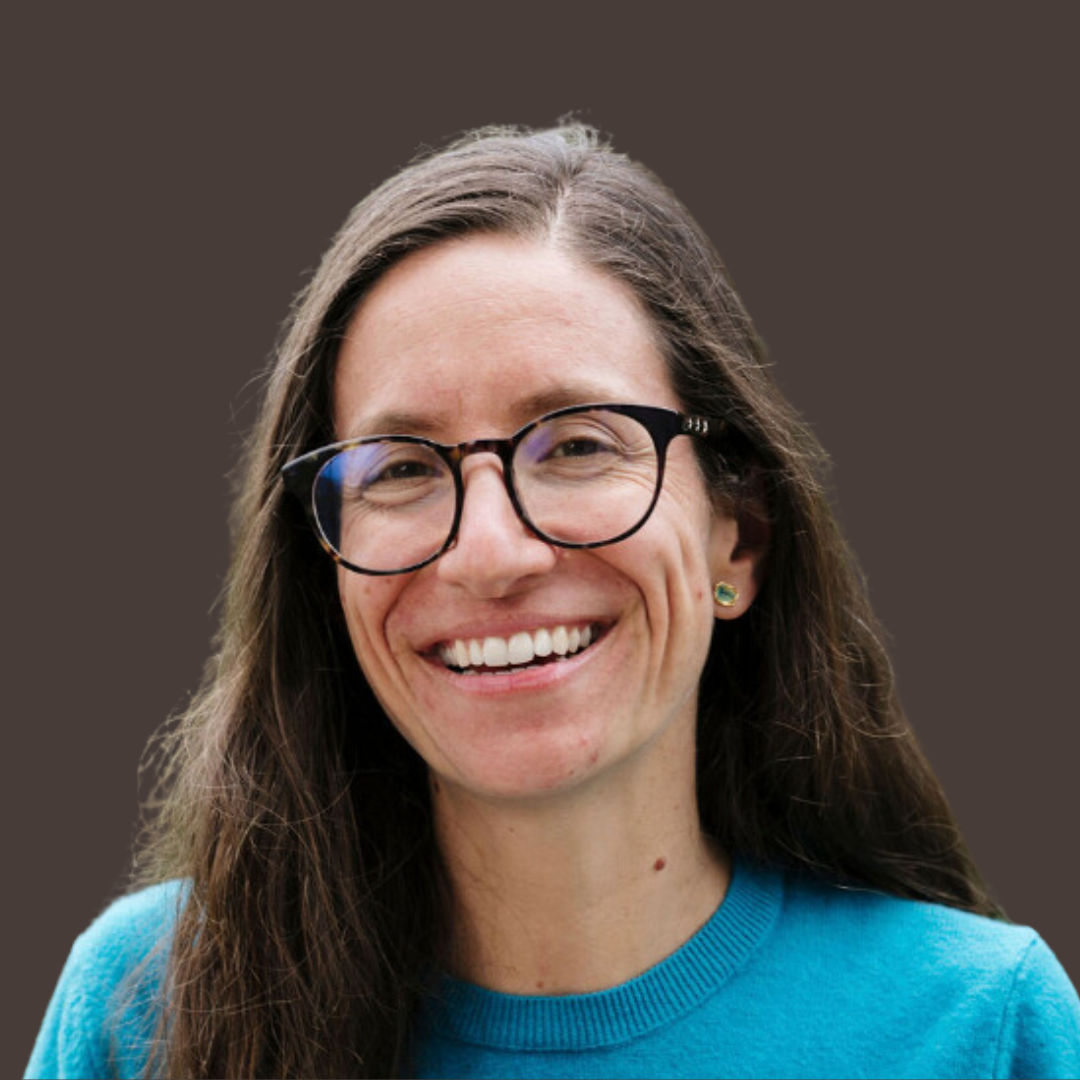
Isabel Cavelier Adarve
Guests
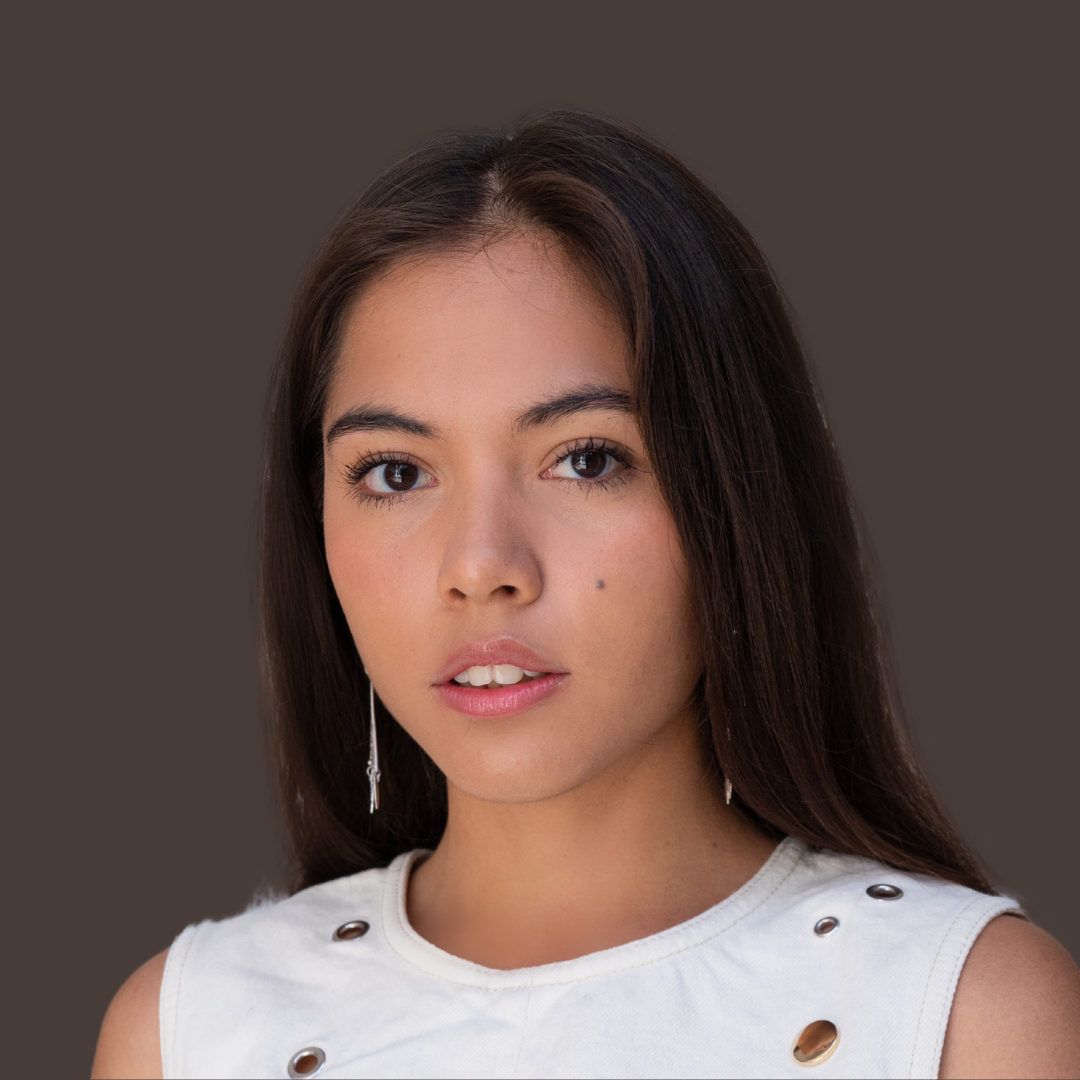
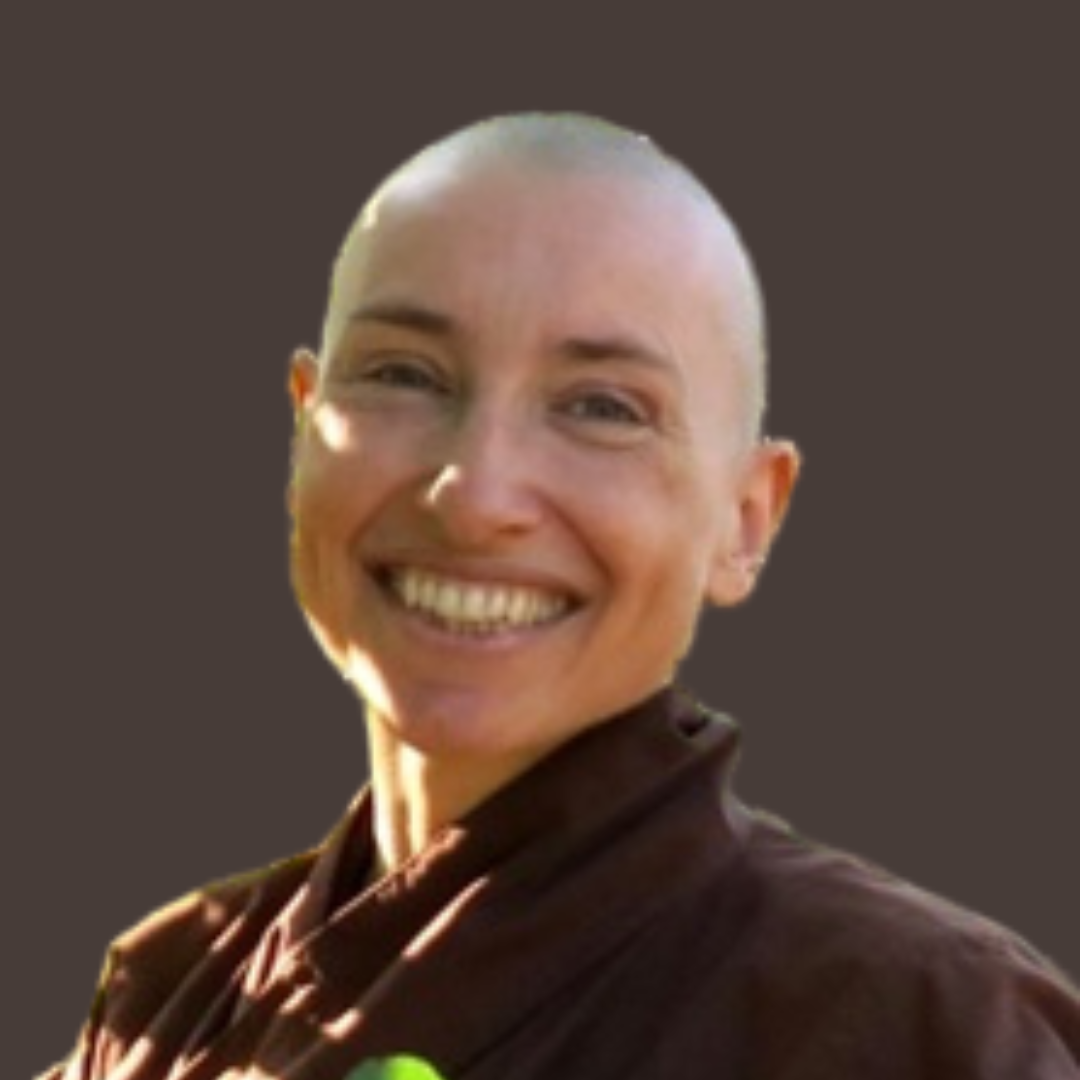
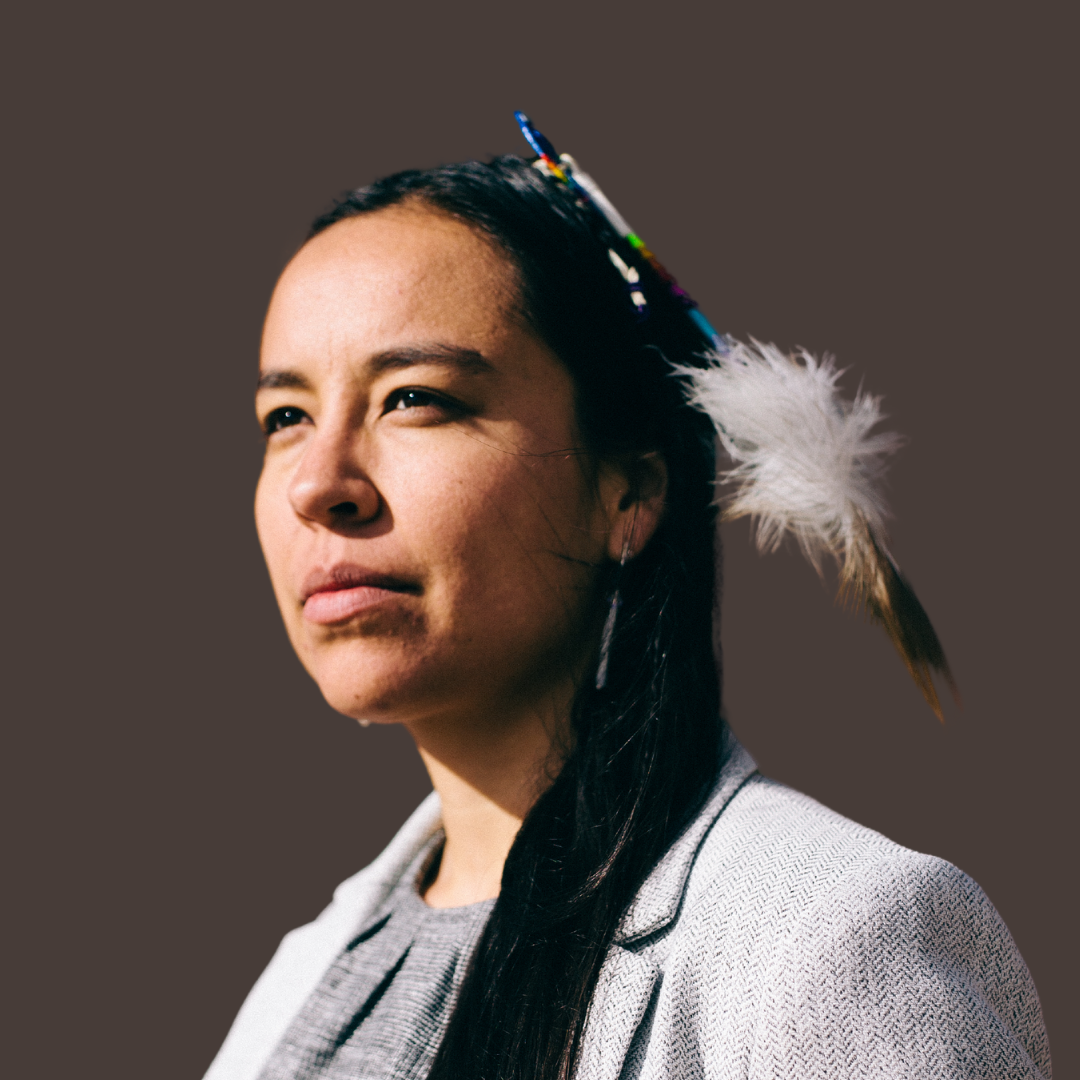
Dr. Lyla June Johnston
 Follow Dr. Lyla June Johnston on Instagram
Follow Dr. Lyla June Johnston on Instagram
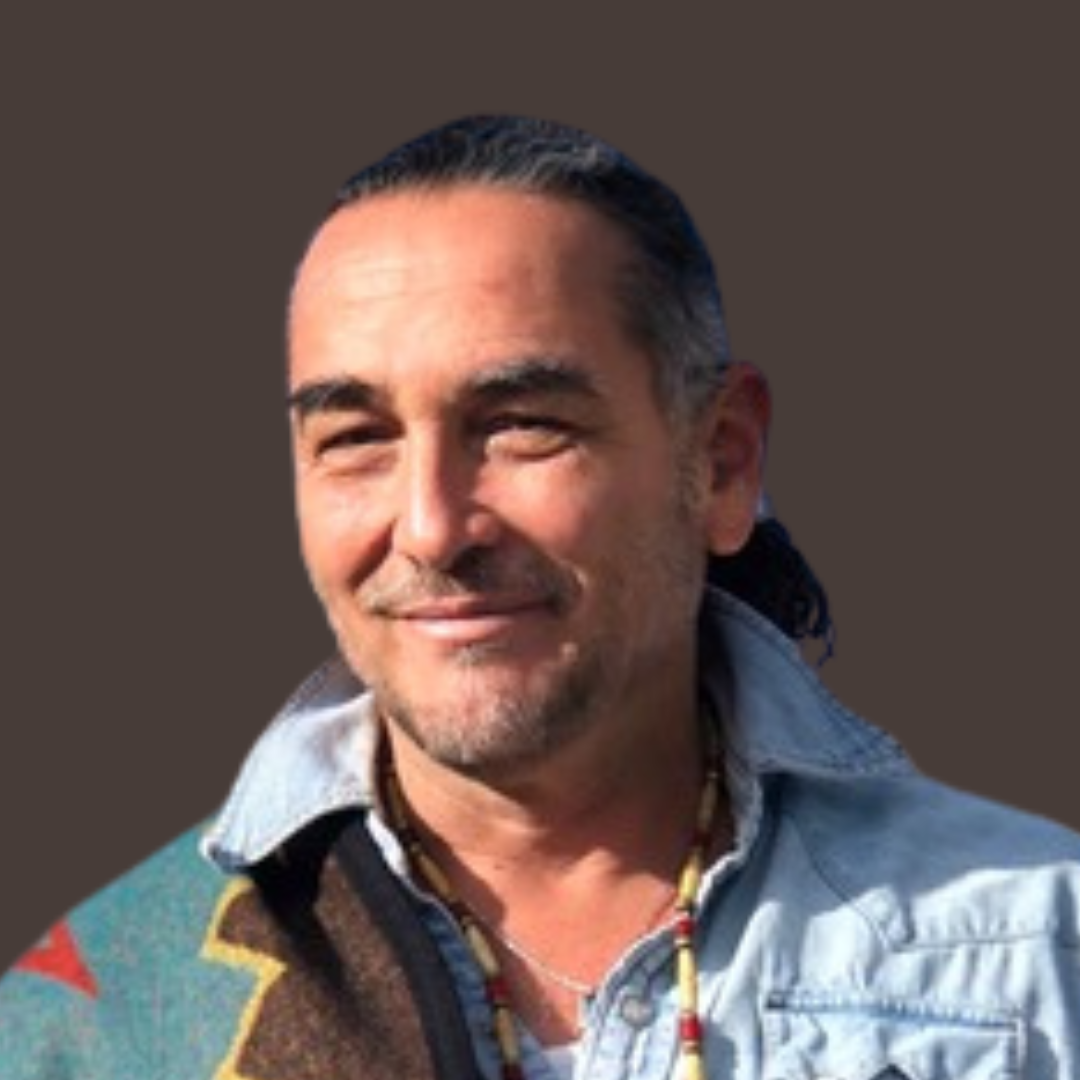
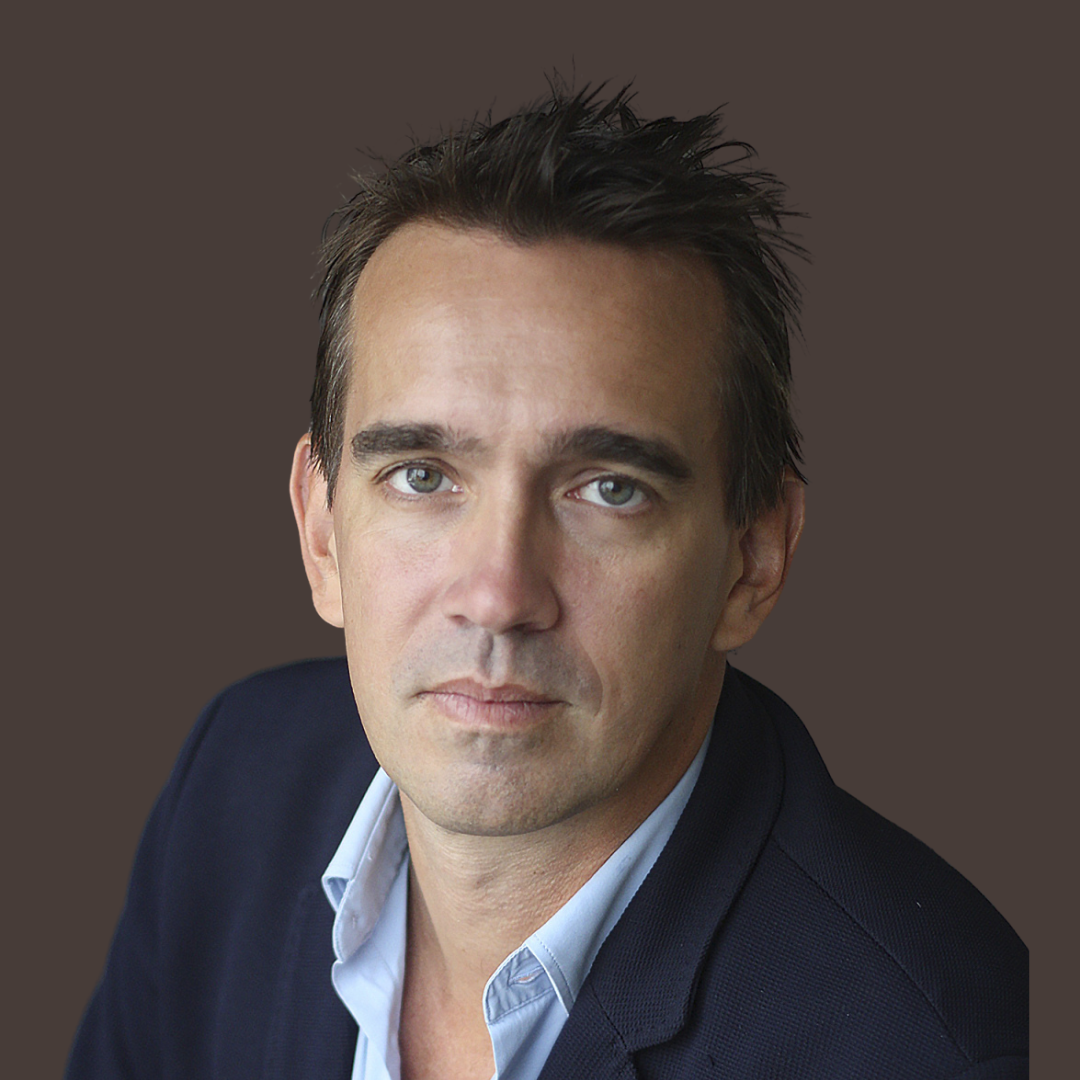
Peter Frankopan
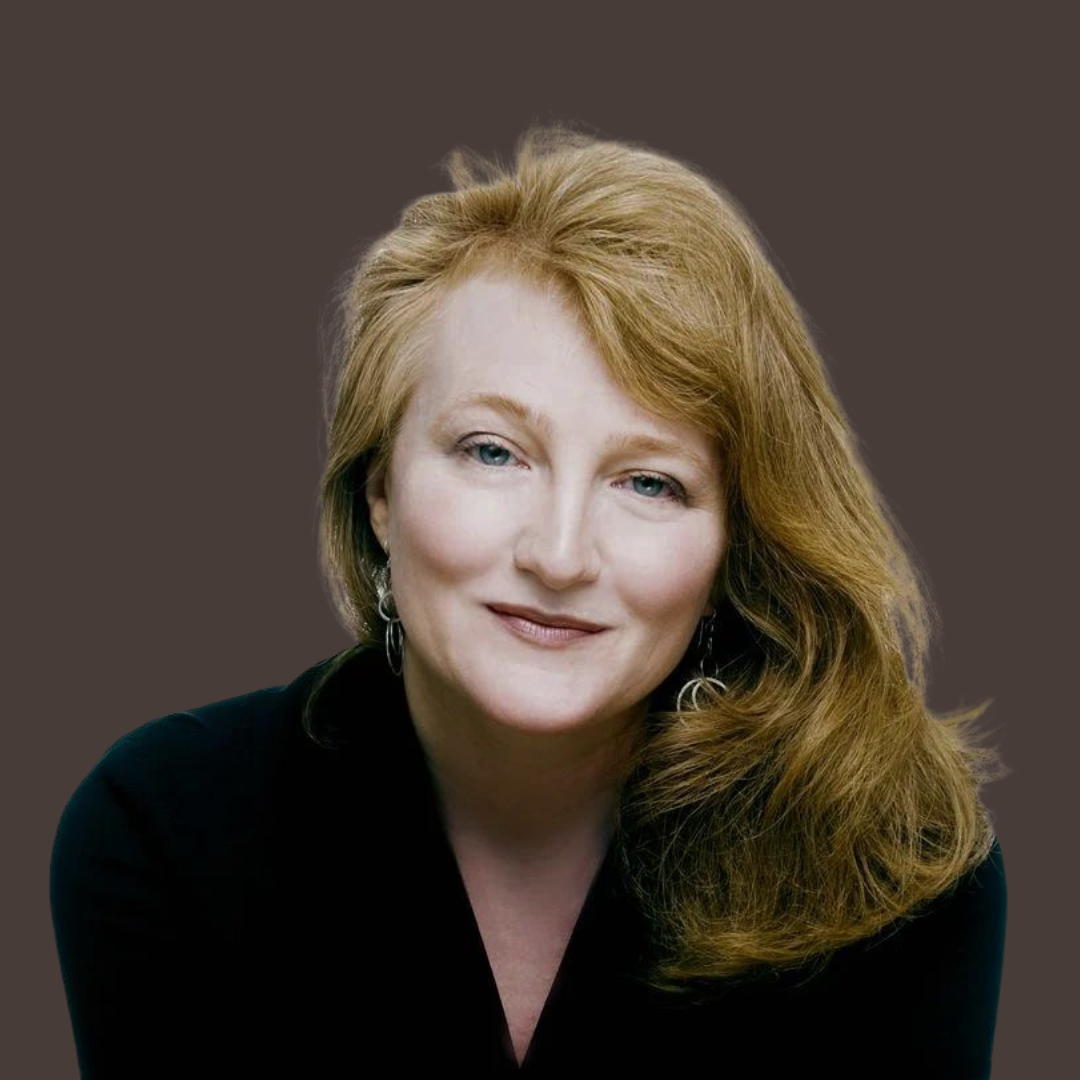
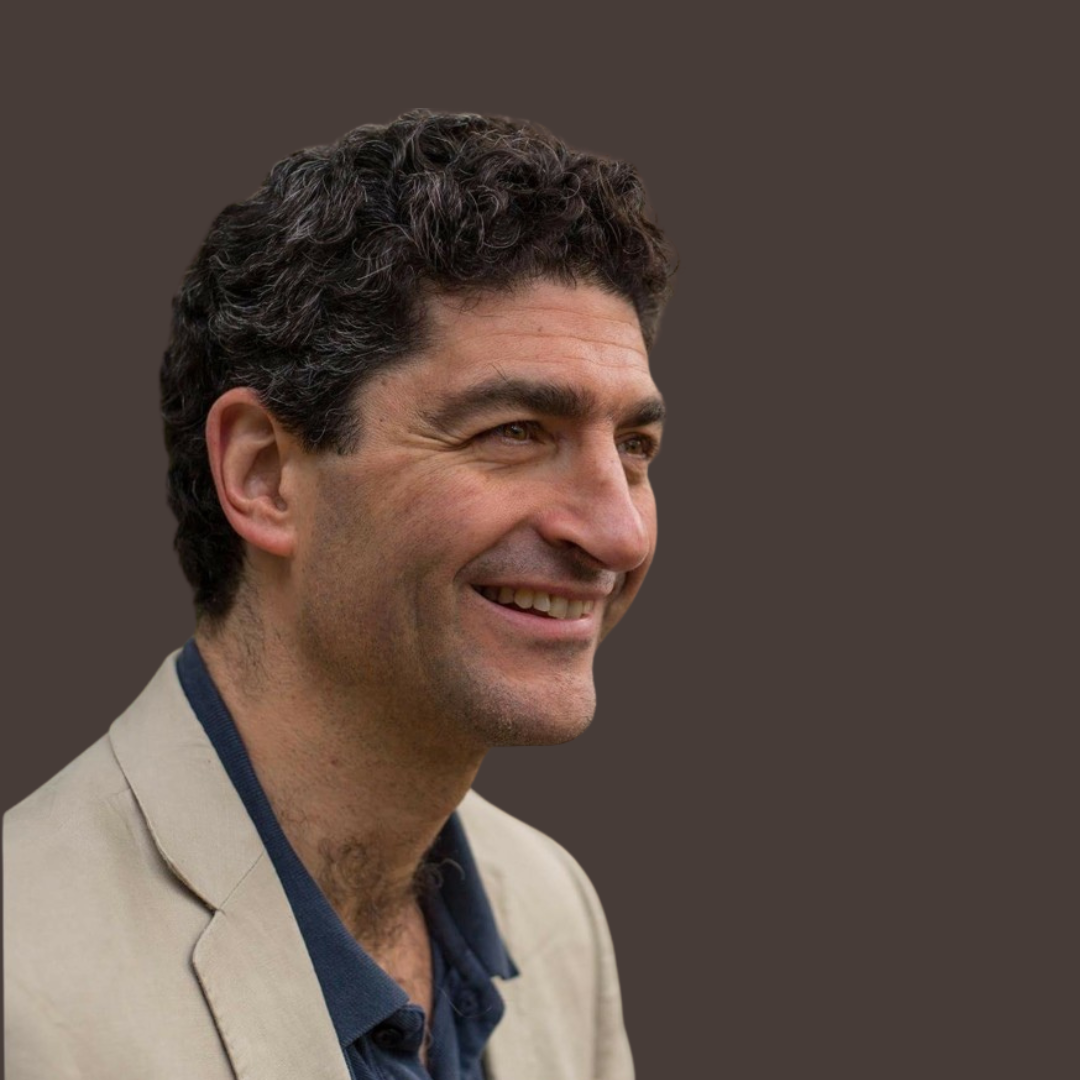
Reverend Doctor Augusto Zampini Davies
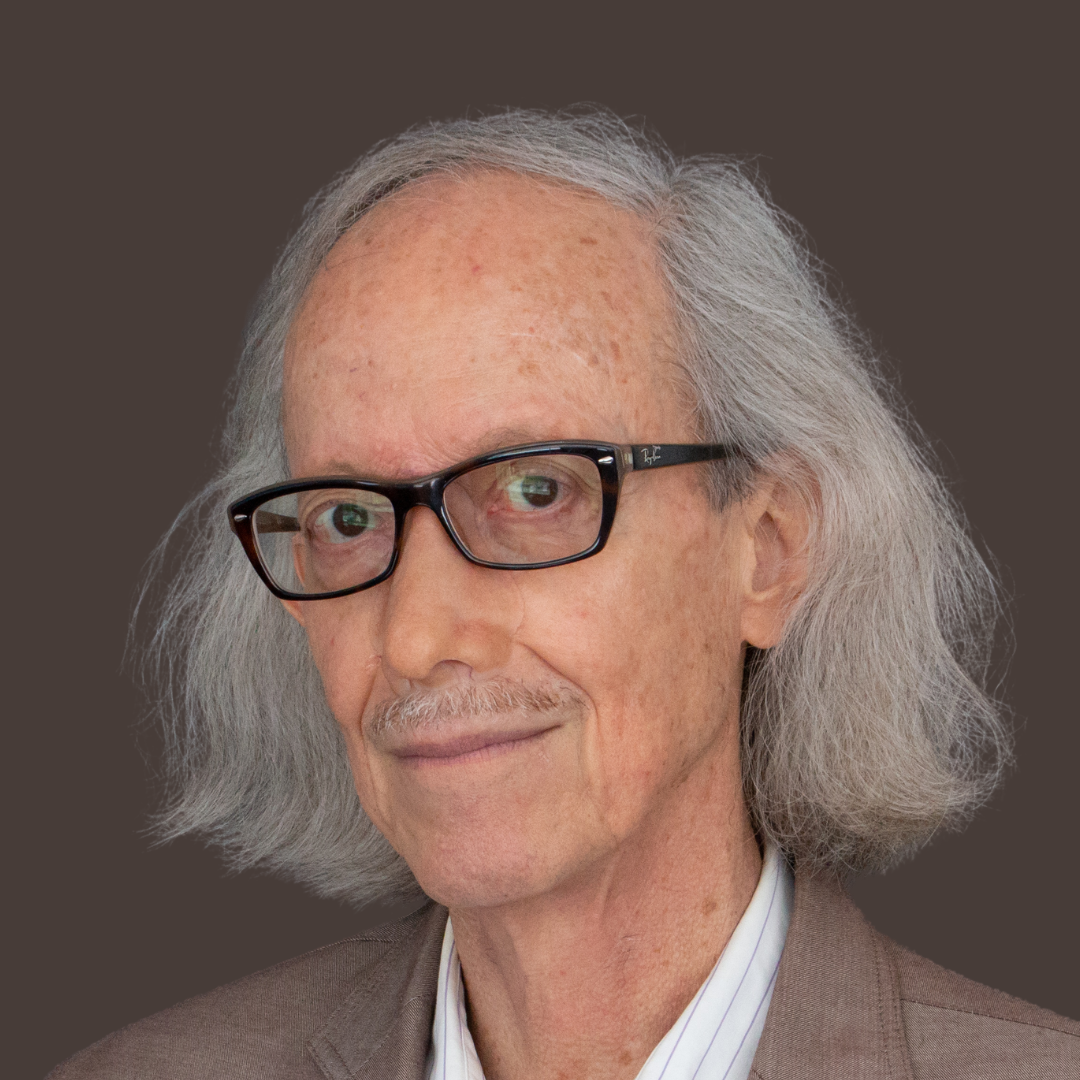
Arturo Escobar
